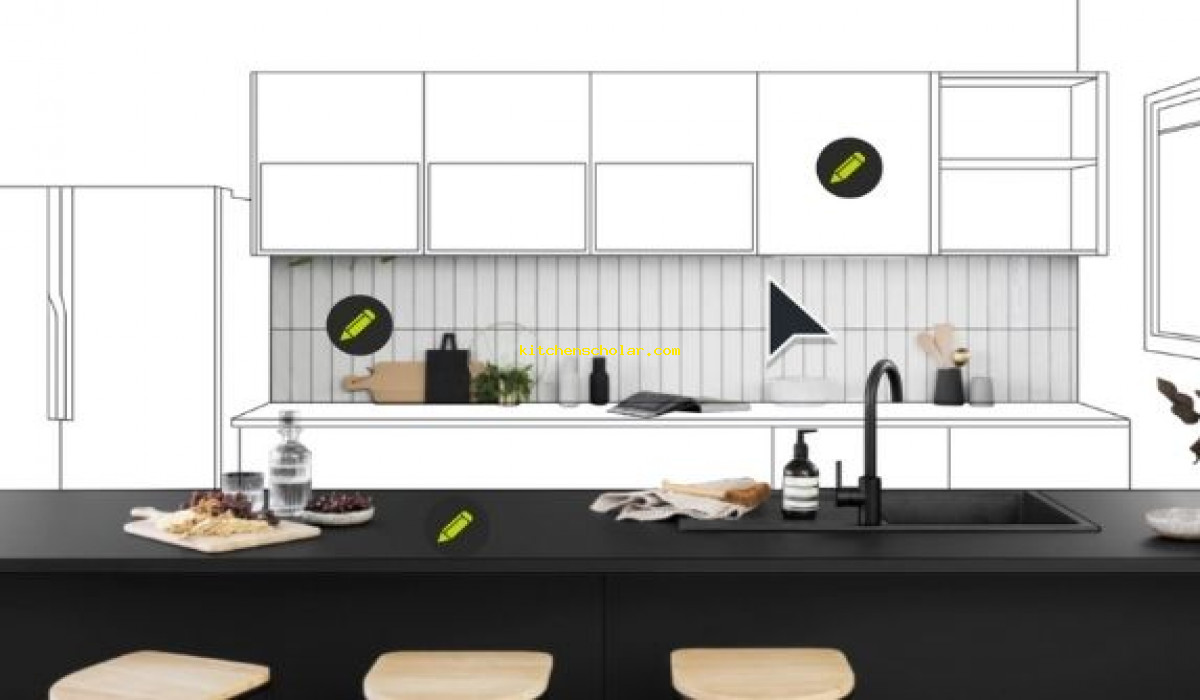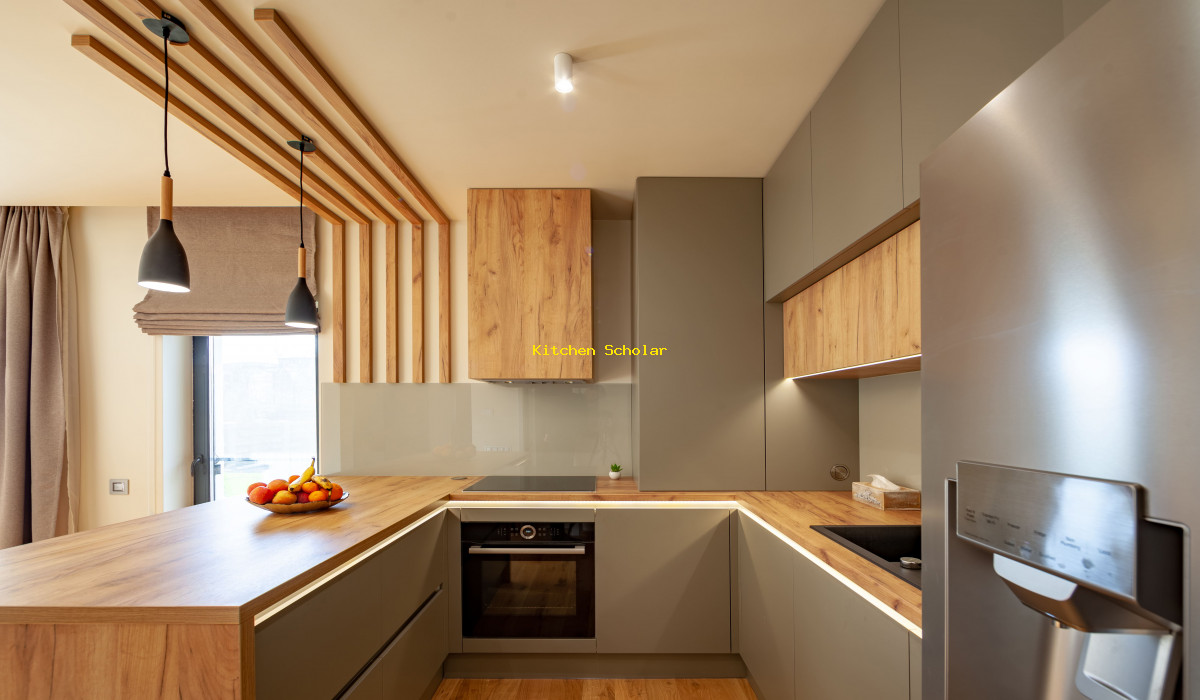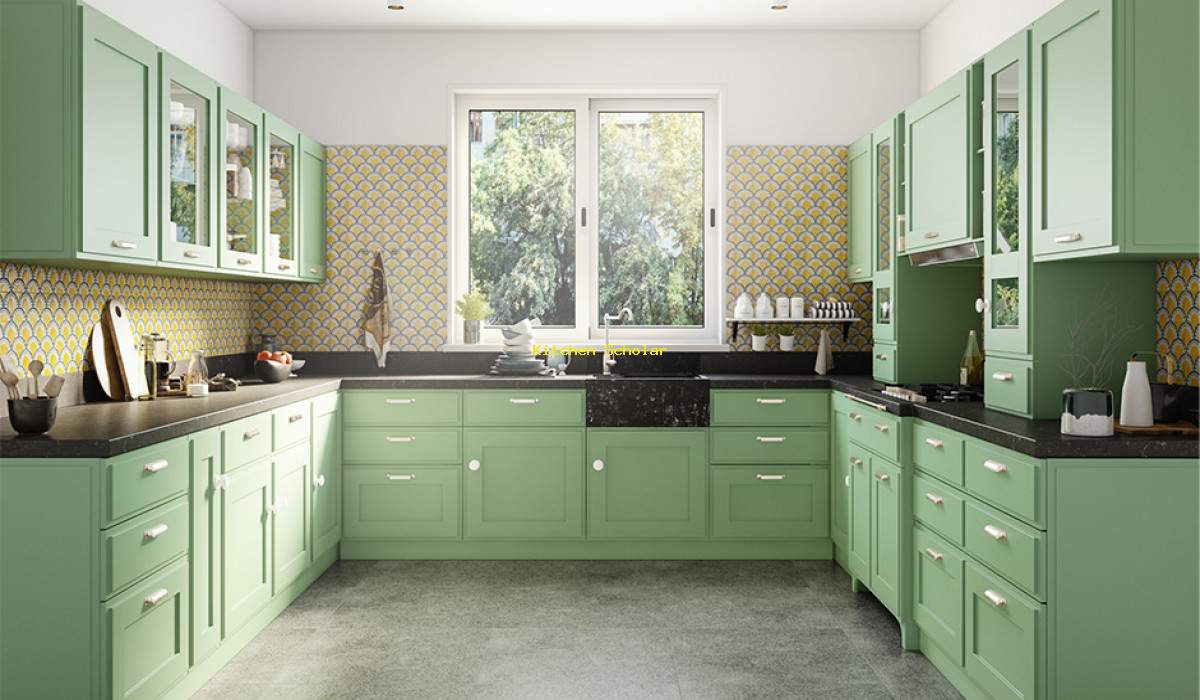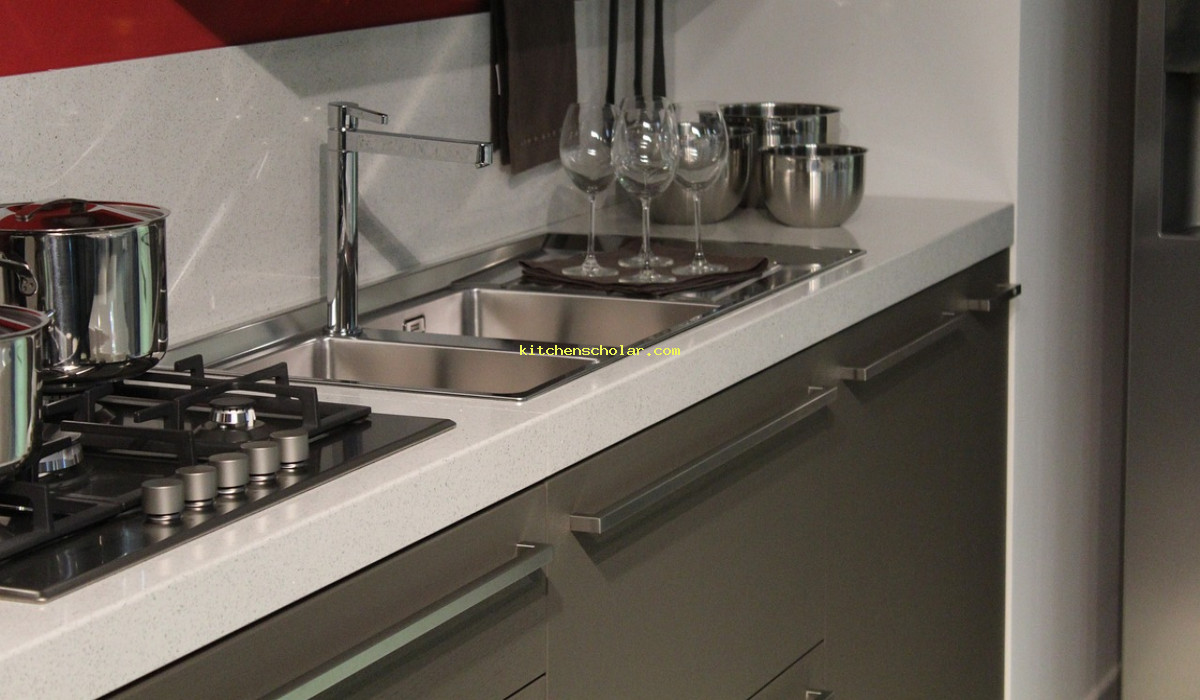5 Simple Solutions for Low Kitchen Sink Water Pressure. Find out why your kitchen sink’s water pressure is low and how to fix it. Don’t let this common issue disrupt your daily tasks in the kitchen. Follow these simple tips and enjoy a smoothly operating sink once again!
Solutions for Low Kitchen Sink Water Pressure
5 Simple Solutions for Low Kitchen Sink Water Pressure
5 Simple Solutions for Low Kitchen Sink Water Pressure. common issue disrupt 5 Simple Solutions for Low Kitchen Sink Water Pressure

Understanding Low Water Pressure in Kitchen Sinks
Water pressure is a crucial factor in the functionality of a kitchen sink. It allows for efficient cleaning and cooking processesSolutions for Low Kitchen Sink Water Pressure, making our daily tasks much easier. Solutions for Low Kitchen Sink Water Pressure, when you turn on your kitchen sink faucet and find that the water flow is weak or inconsistentSolutions for Low Kitchen Sink Water Pressure, it can be quite frustrating. Low water pressure in kitchen sinks can be caused by various factors and can greatly impact our daily routines. In this article, we will delve into the reasons behind low kitchen sink water pressure and how it can be resolved.
What Causes Low Water Pressure in Kitchen Sinks?
Kitchen sink water pressure can be affected by several factors,Solutions for Low Kitchen Sink Water Pressure both internal and external. Identifying the cause of low water pressure is crucial in determining the appropriate solution. Here are some of the most common reasons behind low water pressure in kitchen sinks.
Inadequate Water Supply
If your kitchen sink receives its water from a private well or a municipal water system, inadequate water supply can be a potential issue. An insufficient water supply can result from low water levels in the well or a decrease in municipal water pressure. This issue is often prevalent in rural areas or locations with old water systems.
Clogged Pipes
Over time, pipes can accumulate mineral deposits, sediment, and debris, resulting in clogs and reduced water flow. This issue is more common in older homes with galvanized or copper plumbing systems. The accumulation of debris in the pipes can also restrict the water flow to the kitchen sink,Solutions for Low Kitchen Sink Water Pressure leading to low water pressure.
Corroded Plumbing
Plumbing pipes can corrode over timeSolutions for Low Kitchen Sink Water Pressure, especially if they are made of metal. When the pipes corrode, their interior surfaces become rough, causing mineral deposits and debris to build up more easily, leading to clogs and low water pressure.
Leaking Pipes
Leaks in plumbing pipes can also cause low water pressure. When there is a leak in the pipes, the water flow is diverted in different directions, resulting in reduced pressure at the faucet. If left unattended, leaking pipes can not only cause low water pressure but also lead to water damage and higher water bills.

Faulty Pressure Regulator
A faulty pressure regulator can cause either high or low water pressure in your kitchen sink. It is responsible for regulating the water pressure in your home and ensuring it remains within a safe range. If the pressure regulator is malfunctioningSolutions for Low Kitchen Sink Water Pressure, it can cause low water pressure in the kitchen sink and other areas of your home.
Faulty Faucet
In some cases, the issue of low water pressure may not be due to any external factors, but a faulty faucet. Over time, faucets can become worn out or cloggedSolutions for Low Kitchen Sink Water Pressure, causing a decrease in water flow. If the faucet is the only source of low water pressure in your kitchen sinkSolutions for Low Kitchen Sink Water Pressure, then it may need to be repaired or replaced.
Resolving Low Water Pressure in Kitchen Sinks
Knowing the cause of low water pressure in your kitchen sink is crucial in resolving the issue effectively. Here are some potential solutions to help improve water pressure in your kitchen sink.
Check Your Water Supply
If you suspect that your water supply is the cause of low water pressureSolutions for Low Kitchen Sink Water Pressure, it is best to contact your local water company. They can provide updates on any maintenance or repairs being done on the water system. If you have a private well, consider checking the water levels to ensure there is an adequate supply.
Clean or Replace Clogged Pipes
If you suspect that clogged pipes are the reason for low water pressure, try to clean them using a mixture of baking soda and vinegar. If that does not workSolutions for Low Kitchen Sink Water Pressure, you may need to call a professional plumber to clean or replace the clogged pipes.
Replace Corroded Pipes
Replacing corroded pipes with newer ones can help improve water flow and pressure in your kitchen sink. If the corrosion is too severe, a professional plumber may need to replace the pipes.

Fix Leaking Pipes
Leaks in plumbing pipes should be dealt with immediately to avoid not only low water pressure but also potential water damage and increased water bills. If you are not comfortable fixing the leak yourself, it is best to call a professional plumber.
Repair or Replace Faulty Pressure Regulator
If the pressure regulator is the issueSolutions for Low Kitchen Sink Water Pressure, it may need to be repaired or replaced by a professional. Consider hiring a licensed plumber to determine the cause of the malfunction and find the appropriate solution.
Replace Faulty Faucet
If the faucet is the only source of low water pressureSolutions for Low Kitchen Sink Water Pressure, it may need to be replaced. You can either replace it on your own or hire a professional plumber.
Prevention Tips
While some causes of low water pressure are out of our control, there are preventive measures we can take to avoid this issue. Here are some tips to help keep your kitchen sink water pressure at optimal levels.
Regularly Clean and Maintain Pipes
To prevent clogs and debris buildup in your pipes, it is essential to clean and maintain them regularly. You can use safe and natural solutions such as baking soda and vinegar, or hire a professional plumber to do a thorough cleaning.
Use a Water Softener
If your home has hard water, consider using a water softener to prevent mineral deposits and increase water flow. A water softener works by removing minerals such as calcium and magnesium from the waterSolutions for Low Kitchen Sink Water Pressure, resulting in softer water that is less likely to cause clogs.
Check for Leaks
Regularly check for leaks in your plumbing system to avoid not only low water pressure but also potential water damage and high water bills.
Replace Old Plumbing
If your home has old plumbing, consider replacing it with newer and more durable materials to avoid frequent clogs and corrosion.
Use a Water Pressure Gauge
To keep track of your water pressure and detect any inconsistencies, consider using a water pressure gauge. If you notice a sudden drop in pressureSolutions for Low Kitchen Sink Water Pressure, it may be an indicator of an underlying issue that needs to be addressed.
Final Thoughts
Low water pressure in kitchen sinks can be a significant inconvenience, but it is a problem that can be resolved with the proper knowledge and solutions. By understanding the potential causes and taking preventive measures, you can maintain optimal water pressure in your kitchen sink. Solutions for Low Kitchen Sink Water Pressure, if the issue persists, it is best to consult a professional plumber to identify and address the root cause. Remember, a small investment in fixing low water pressure can save you from bigger problems and frustrations in the future.
5 Simple Solutions for Low Kitchen Sink Water Pressure
Find out why your kitchen sink’s water pressure is low and how to fix it. Don’t let this common issue disrupt your daily tasks in the kitchen. Follow these simple tips and enjoy a smoothly operating sink once again!. Kitchen sink or Low water pressure 5 Simple Solutions for Low Kitchen Sink Water Pressure
How to fix a sink with low water pressure (kitchen or bathroom Faucet) Hot and Cold
5 Simple Solutions for Low Kitchen Sink Water Pressure How to fix a sink with low water pressure (kitchen or bathroom Faucet) Hot and Cold Video 5 Simple Solutions for Low Kitchen Sink Water Pressure
Low water pressure in a kitchen sink can be incredibly frustrating and lead to many inconveniences, from slow filling sinks to weak water flow when washing dishes. There are many potential causes for low water pressure in your kitchen sink, and understanding these causes is the key to finding a solution. In this blog post, we will explore the most common reasons behind low water pressure in kitchen sinks and offer potential solutions to help you tackle this issue.
Clogged Aerators
A clogged aerator is one of the most common causes of low water pressure in a kitchen sink. Aerators are small attachments at the end of your faucet that regulates the flow of water and helps to reduce splashing. Over time, mineral deposits, sediment, and debris can build up in the aerator, restricting the water flow and leading to low water pressure.
What To Do:
If you suspect a clogged aerator, start by unscrewing it from the faucet. Soak the aerator in vinegar or a calcium, limeSolutions for Low Kitchen Sink Water Pressure, and rust (CLR) cleaner to dissolve any buildup. You can also use a small brush or toothpick to carefully remove any debris from the screen. Once clean, reinstall the aerator on the faucet and run water to check the pressure. If the issue persists, it may be worth investing in a new aerator altogether.
Leaking Pipes
If the pipes leading to your kitchen sink are leaking, it can result in low water pressure as the water is not reaching the faucet at full force. Piping can develop leaks over time due to old age, corrosion, or damage from external factors.
What To Do:
If you suspect a leak in your pipes, it’s important to get them repaired as soon as possible. Depending on the location and severity of the leak, you may be able to fix it yourself or may need to hire a professional plumber. Regularly inspect your pipes for any signs of leaks, such as dampness, mold, or water stains.
Water Supply Issues
If you have ruled out any issues within your home’s plumbing system, it is possible that the low water pressure is due to problems with the municipal water supply. The water pressure in your home is directly related to the water pressure coming from the main supply line, so any issues in the supply can affect your kitchen sink.
What To Do:
If you suspect a problem with the municipal water supply, reach out to your local water authority for assistance. They may be able to provide information on any maintenance or repairs work taking place. It’s also a good idea to keep an eye on the press release section of your water supplier’s website for any notifications on service disruptions.
Corroded Plumbing or Water Lines
Corrosion in your plumbing or water lines can restrict the flow of water and lead to low water pressure in your kitchen sink. Corrosion occurs due to the presence of minerals and chemicals in the water, causing the pipes and lines to deteriorate over time.
What To Do:
If you suspect corrosion in your plumbing or water lines, it’s best to have a professional plumber assess the situation. They may need to replace corroded pipes or lines to restore water pressure. Regularly cleaning your plumbing and lines can also help prevent corrosion.
Broken Pressure Regulator
If your kitchen sink has always had low water pressure, it may be due to a broken pressure regulator. This regulator is responsible for controlling the output of water from your main supply line. When it’s not functioning correctly, it can restrict the water flow and lead to low water pressure.
What To Do:
If you suspect a broken pressure regulator, it’s best to consult a professional plumber. They may need to replace the regulator to restore proper water pressure. It’s also worth checking with your local water provider to see if they can adjust the pressure from their end.
Old Fixtures
Over time, the fixtures and components in a kitchen sink can deteriorate, causing issues with water pressure. This can include the faucet, valves, and other components within the plumbing system.
What To Do:
If you suspect old fixtures are the cause of low water pressure in your kitchen sink, consider replacing them with newer components. This can help to ensure proper water flow and pressure. If the issue persists, it’s best to consult a professional plumber for further assistance.
Water Softener Issues
If you have a water softener system in your home, it can sometimes lead to low water pressure in your kitchen sink. If the regeneration process of the water softener is not functioning correctly, it can cause mineral buildup, which can then restrict the water flow.
What To Do:
If you suspect a problem with your water softener, consult the manufacturer’s instructions for troubleshooting. If that doesn’t solve the issueSolutions for Low Kitchen Sink Water Pressure, reach out to a professional plumber for assistance. They may be able to fix or replace any damaged components within the system.
Cracked Pipes or Joints
If there is a crack in your plumbing pipes or joints, it can lead to low water pressure as the water is leaking out through the crack before it reaches your kitchen sink. This can happen due to external factors, such as tree roots growing into the pipes or pipes freezing in cold weather.
What To Do:
If you suspect cracked pipes or jointsSolutions for Low Kitchen Sink Water Pressure, it’s best to call a professional plumber for assistance. They will be able to assess the damage and make any necessary repairs to restore proper water pressure.
Clogged Drain Line
If your drain line is cloggedSolutions for Low Kitchen Sink Water Pressure, it can cause water to back up in your kitchen sink and lead to low water pressure. This can happen due to the buildup of food scraps, grease, hair, or other debris.
What To Do:
If your drain line is clogged, start by using a plunger to try and clear the blockage. If that doesn’t work, you may need to use a drain snake or call a professional plumber for assistance. To avoid future clogs, be mindful of what you put down your kitchen sink and regularly clean the drain.
Faulty Pressure Regulator
In addition to a broken pressure regulator, a faulty pressure regulator can also cause low water pressure in your kitchen sink. A faulty regulator may malfunction and restrict the water flow, leading to low water pressure.
What To Do:
If you suspect a faulty pressure regulator, consulting a professional plumber is the best course of action. They will be able to diagnose the issue and either repair or replace the faulty regulator.
Faulty Water Meter
A faulty water meter can also affect the overall water pressure in your home, including in your kitchen sink. A malfunctioning meter may not be accurately measuring the flow of water, which can result in low water pressure.
What To Do:
If you suspect a faulty water meter, contact your local water provider to have it inspected and possibly replaced. They are responsible for maintaining the meter, so they should be able to assist you in resolving the issue.
Water Valve Issues
The water valve controls the flow of water into your home and can affect the overall water pressure. If the valve is partially closed or not functioning correctlySolutions for Low Kitchen Sink Water Pressure, it can lead to low water pressure in your kitchen sink.
What To Do:
If you suspect issues with the water valve, consult the manufacturer’s instructions for troubleshooting or call a professional plumber for assistance. They may need to replace the valve to restore proper water pressure.
Sediment Buildup in Water Heater
If you have a tank-style water heater, sediment buildup can occur at the bottom of the tank, affecting its overall functionality. This can result in low water pressure in your kitchen sink.
What To Do:
To prevent sediment buildup in your water heater, it’s recommended to regularly flush the tank according to the manufacturer’s instructions. If the issue persists, consult a professional plumber for further assistance.
Incorrectly Sized Pipes
If the pipes leading to your kitchen sink are too small, it can affect the water pressure as the water struggles to flow through. This can happen if you have recently installed a new sink or made any modifications to your plumbing system.
What To Do:
If you suspect incorrectly sized pipes, consult a professional plumber for further advice. They will be able to assess your plumbing system and make any necessary adjustments to ensure proper water flow and pressure.
LSI Keywords for Low Water Pressure
Now that we have covered the most common causes of low water pressure in kitchen sinks, let’s take a look at some LSI keywords related to this topic. By using natural language and relevant keywordsSolutions for Low Kitchen Sink Water Pressure, Google will distinguish your content as authoritative and helpful, potentially boosting your search engine ranking. These include:
- Sink water pressure low
- Kitchen faucet low water pressure
- Clogged sink aerator
- How to fix low water pressure in kitchen sink
- Water pressure troubleshooting
- Corroded plumbing pipes
- Dripping faucet
- Kitchen sink problems
- How to increase water pressure in sink
- Household plumbing issues
- Water flow restrictions
- Municipal water supply problems
- Old plumbing fixtures
- Water softener maintenance
- Drain line clogs
Conclusion
Low water pressure in a kitchen sink can be a frustrating problem, but thankfully, many solutions are available. By understanding the potential causes behind this issue, you can troubleshoot and resolve the problem efficiently. Keep an eye on your plumbing system and regularly maintain it to avoid any future issues with water pressure.
Final Thoughts
Low water pressure in a kitchen sink may seem like a minor inconvenience, but it can have a significant impact on your daily routine. By taking the necessary steps to identify and resolve this issue, you can ensure proper water flow and pressure in your kitchen sink and prevent any further problems in the future. Be proactive and tackle low water pressure as soon as you notice it to avoid any further inconvenience.
5 Simple Solutions for Low Kitchen Sink Water Pressure

5 Simple Solutions for Low Kitchen Sink Water Pressure
Why is my kitchen sink water pressure low?
There are a few possible reasons for low water pressure in the kitchen sink. One common cause is mineral buildup in the faucet aerator, which can restrict the flow of water. Another possibility is a clogged pipe or valve in the plumbing system. Old, corroded pipes can also contribute to low water pressure. Finally, a problem with the municipal water supply can lead to low water pressure in all the fixtures in your home, including the kitchen sink.
How can I fix low water pressure in my kitchen sink?
If the problem is a clogged aerator, you can clean or replace it to improve water flow. If the issue is with a clogged pipe or valve, you may need to call a plumber to locate and clear the blockage. In some casesSolutions for Low Kitchen Sink Water Pressure, outdated plumbing may need to be replaced to restore adequate water pressure. If the municipal water supply is the cause of the low pressure, you can contact your water provider to report the issue.
Can a kitchen sink low water pressure affect my dishwasher?
Yes, if your kitchen sink has low water pressure, it can also impact the performance of your dishwasher. The dishwasher relies on adequate water pressure to effectively clean dishes. If the water pressure is too low, your dishes may not get as clean as they should. In extreme cases, low water pressure can even cause the dishwasher to fail to operate properly.
What are some signs of low water pressure in my kitchen sink?
Some common signs of low water pressure in the kitchen sink include slow-filling sinks, weak water flow when using the faucet, and difficulty rinsing dishes or vegetables. You may also notice that it takes longer for hot water to reach the sink or that the faucet produces sputtering or gurgling sounds when the water is turned on.
Why do I have low water pressure in my kitchen sink but not in other areas of my home?
There are a few potential reasons for this discrepancy. One possibility is that there is a specific issue with the kitchen sink’s plumbing, such as a clog or a damaged pipe. Another possibility is that the kitchen sink is located far from the main water supply and experiences a decrease in pressure as a result. Solutions for Low Kitchen Sink Water Pressure, the kitchen sink may have a different type of faucet or aerator that affects water pressure.
How can I tell if the problem is with my kitchen sink or the municipal water supply?
If you are experiencing low water pressure in your kitchen sinkSolutions for Low Kitchen Sink Water Pressure, you can check other faucets and fixtures in your home to determine if the issue is isolated to the kitchen sink or is affecting all the plumbing. If other fixtures are also experiencing low pressure, it is likely a problem with the municipal water supply. If only the kitchen sink is affected, the problem may be specific to that fixture.
Can hard water cause low water pressure in my kitchen sink?
Yes, hard water can contribute to low water pressure in the kitchen sink. Hard water contains high levels of minerals, such as calcium and magnesium, that can build up in pipes and fixtures over time. This buildup can restrict water flow and cause low water pressure. A water softener or regular cleaning of the plumbing can help prevent this issue.
Will installing a new faucet increase my kitchen sink water pressure?
Not necessarily. While upgrading to a new faucet may improve water flow if your current one is clogged or damagedSolutions for Low Kitchen Sink Water Pressure, it may not necessarily increase the overall water pressure. If the issue is with your plumbing or the municipal water supply, a new faucet will not solve the problem. It is best to address the root cause of low water pressure before considering a new faucet.
Can low water pressure in my kitchen sink cause damage to my plumbing?
In most cases, low water pressure in the kitchen sink will not cause damage to your plumbing. Solutions for Low Kitchen Sink Water Pressure, if the problem is due to a clog or blockage, the increased pressure on the pipes may eventually lead to damage or a burst pipe. It is important to address low water pressure in a timely manner to avoid potential damage to your plumbing. 5 Simple Solutions for Low Kitchen Sink Water Pressure
